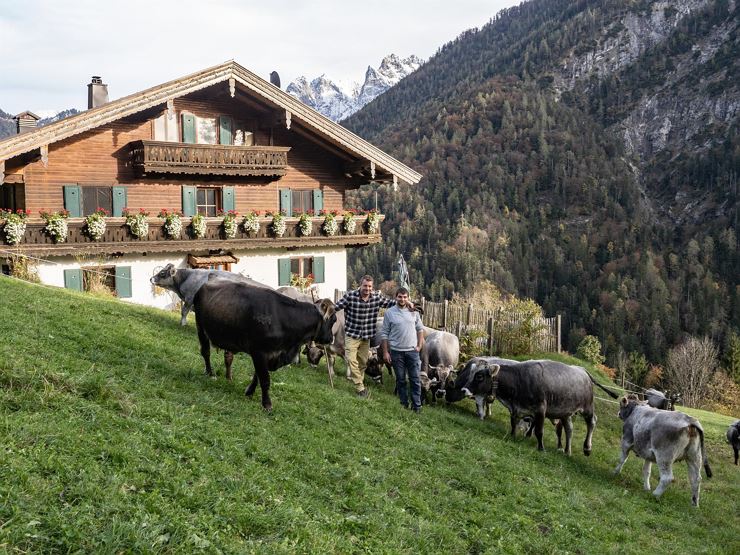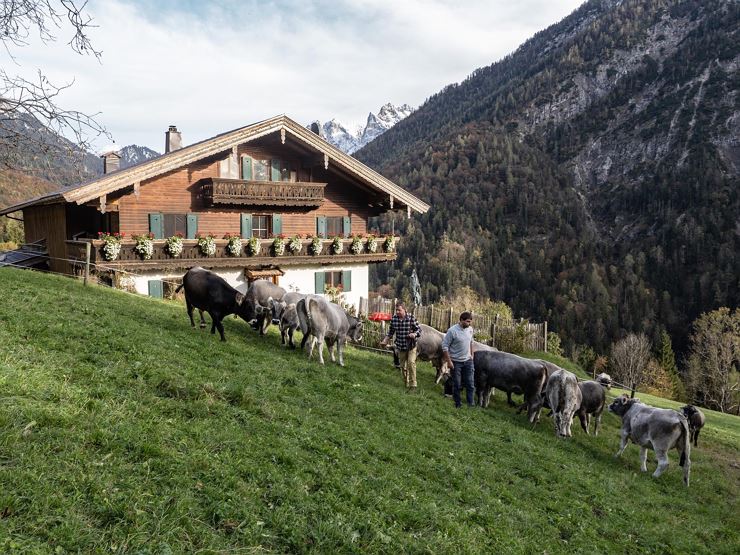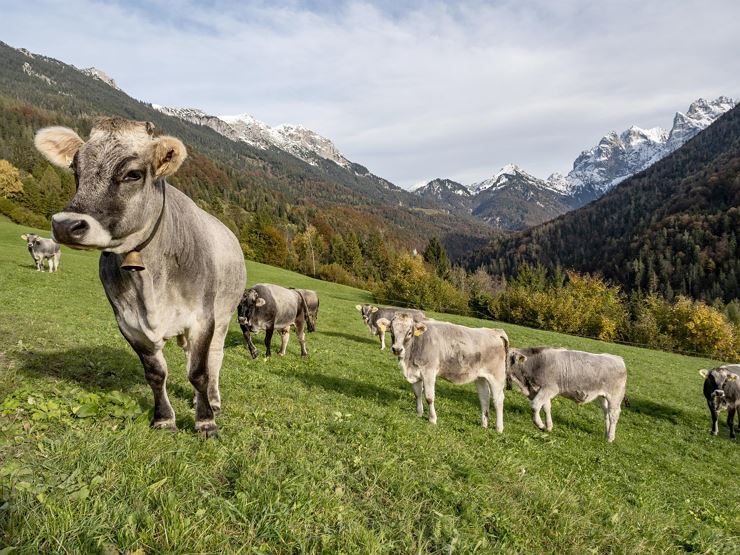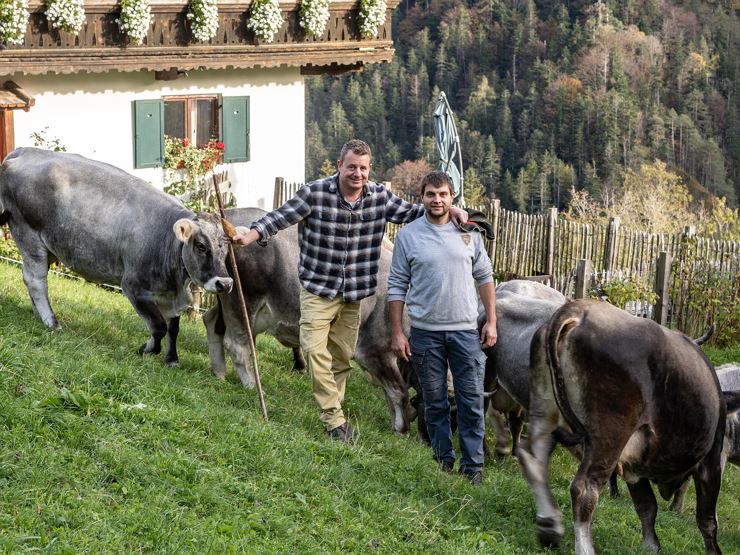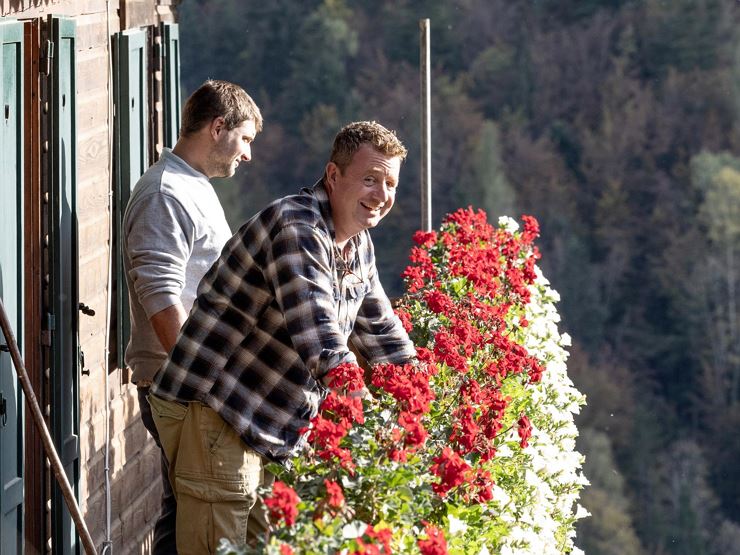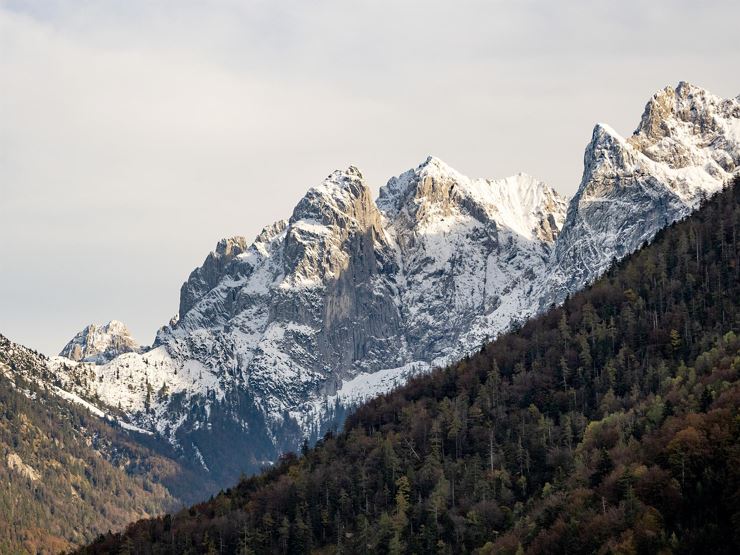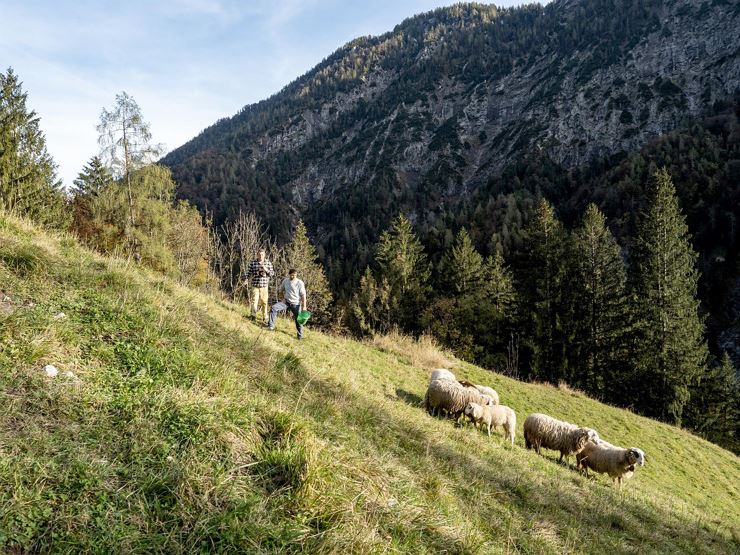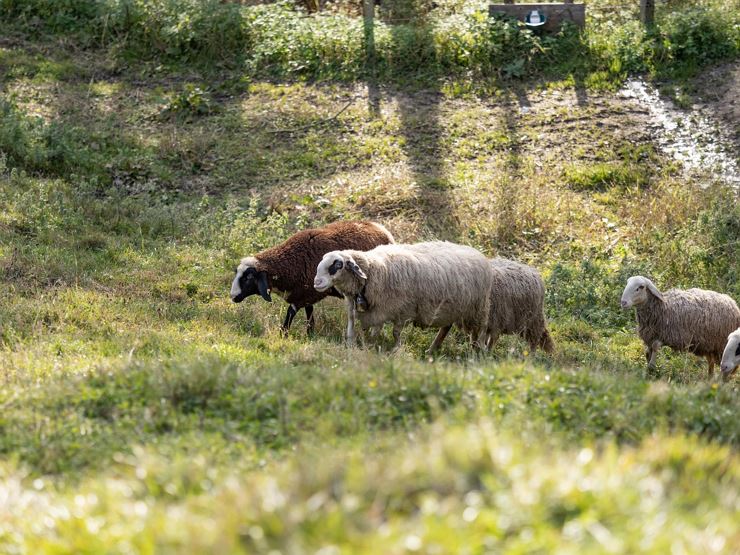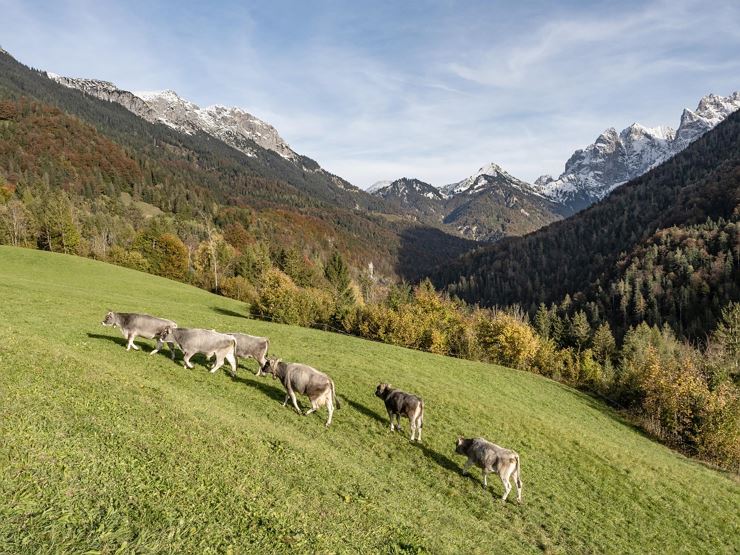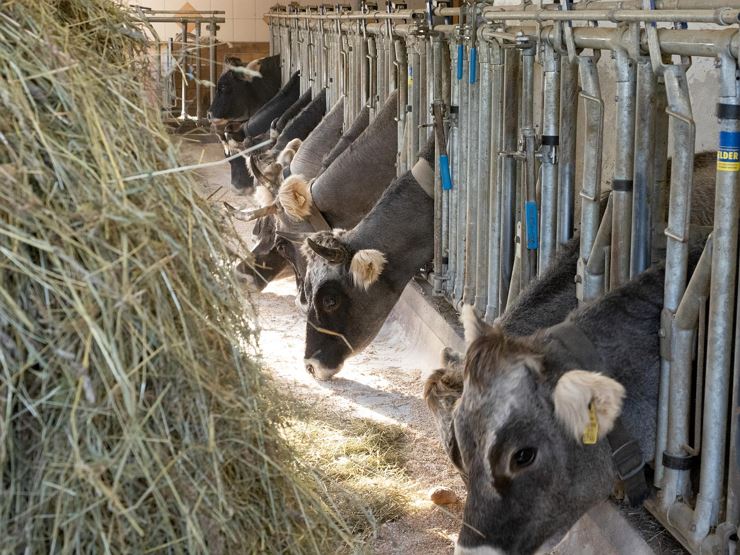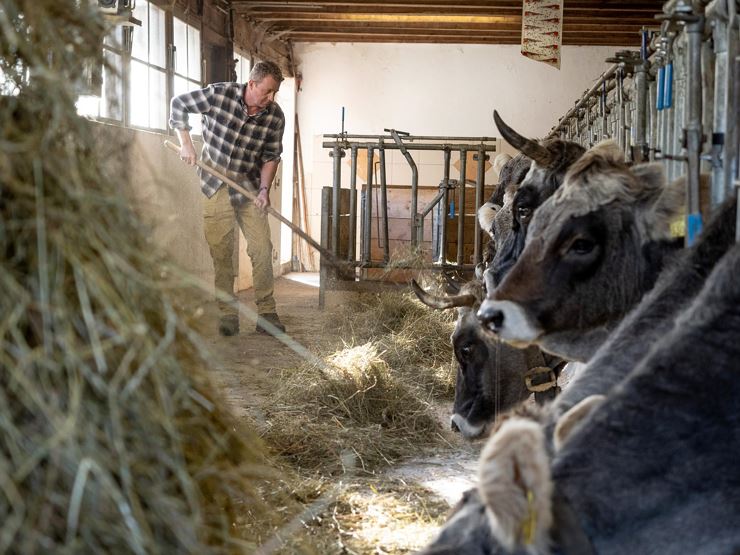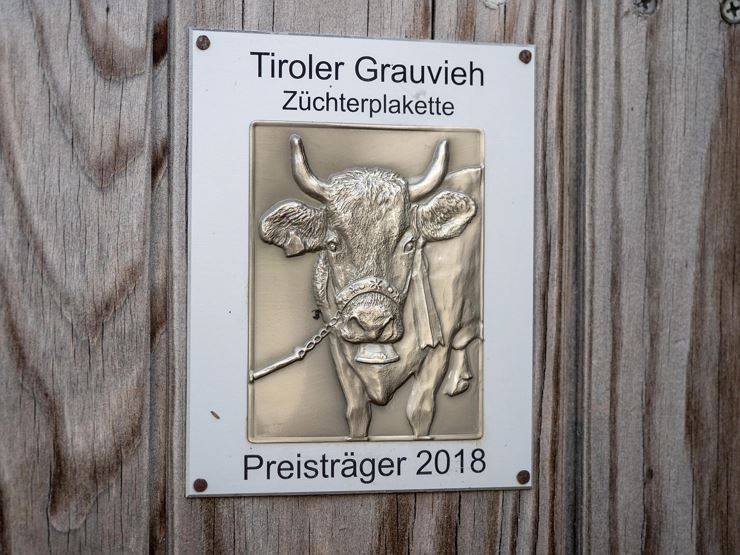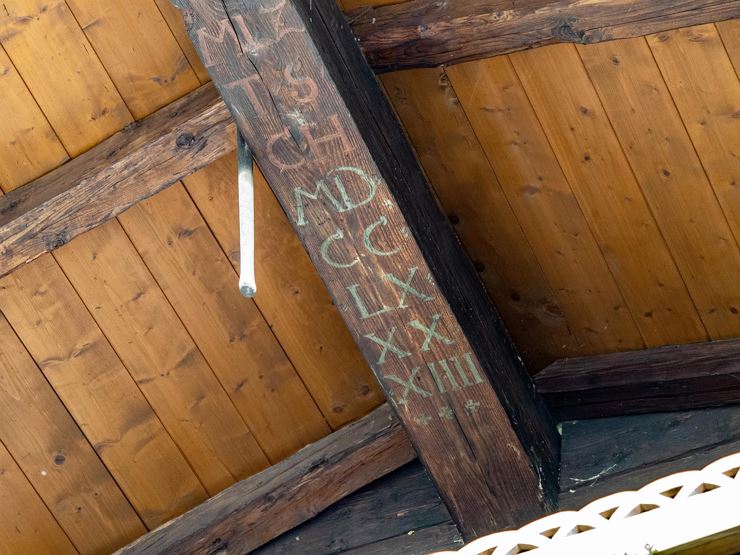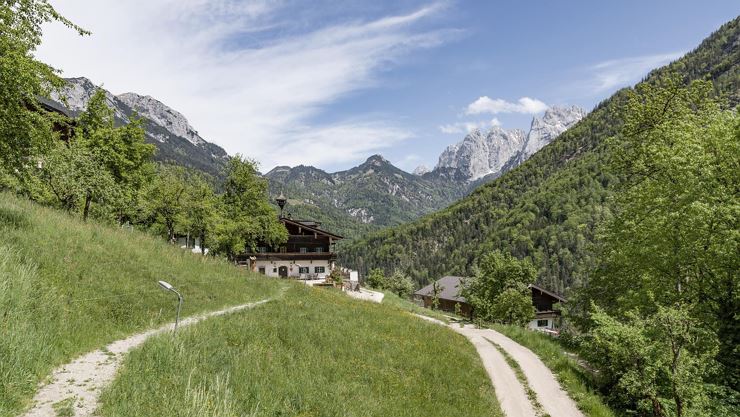Farm Tschamernik - Ebbs
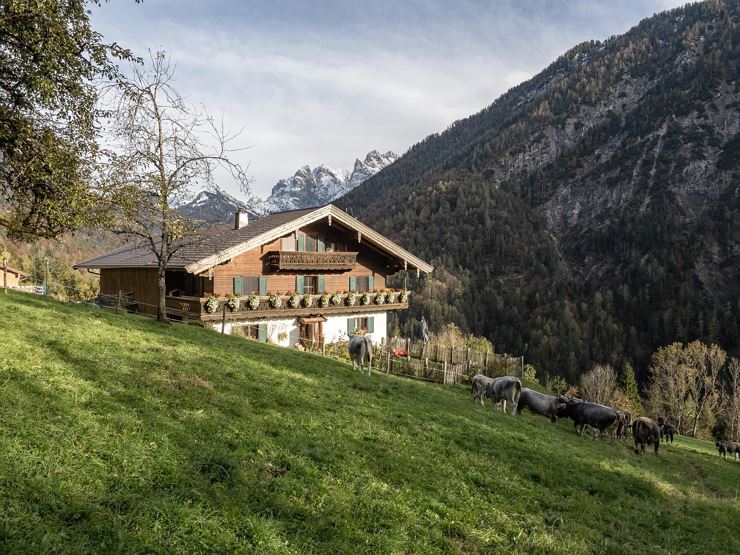 © Hannes Dabernig
© Hannes Dabernig © Hannes Dabernig
© Hannes Dabernig © Hannes Dabernig
© Hannes Dabernig © Hannes Dabernig
© Hannes Dabernig © Hannes Dabernig
© Hannes Dabernig © Hannes Dabernig
© Hannes Dabernig © Hannes Dabernig
© Hannes Dabernig © Hannes Dabernig
© Hannes Dabernig © Hannes Dabernig
© Hannes Dabernig © Hannes Dabernig
© Hannes Dabernig © Hannes Dabernig
© Hannes Dabernig © Hannes Dabernig
© Hannes Dabernig © Hannes Dabernig
© Hannes Dabernig © Hannes Dabernig
© Hannes Dabernig © Hannes Dabernig
© Hannes Dabernig © Hannes Dabernig
© Hannes Dabernig
Managing two farms in different locations is a challenge. Markus Tschamernik and his family are up to it. They live in the Waldviertel, where they run a farm with Carinthian Brillenschafe sheep and manage a hunting ground. When Markus' father-in-law passed away, he and his wife Sonja Reisch also took over the farm and private hunting ground here in the Kaisertal and started breeding Tyrolean Grey cattle.
For both farms, the highest principle is: they must be operated in harmony with nature, without compromise. Simply adhering to the guidelines for organic certification is not enough for these farmers. They seek genuine and true naturalness for their animals, their feed, and their land. The well-being of the animals and nature is paramount for Markus and his family. It's not enough for them to fulfill these values themselves; they want to bring others on board to follow the same path. They want to walk this path together with other businesses, partner farms, the gastronomy sector, and their customers. They aim to start this educational work in schools, explaining to children why it is important to treat nature with care. A dedicated seminar room is being set up in Lower Austria for this purpose, where these topics can be discussed with interested customers, children, and student groups. For these farmers, it is clear: nature and animals cannot continue to be treated as they have been. A change in mindset is essential. For example, people's meat consumption is far too high. This is not only unhealthy for the body but also harms the environment and nature. Ultimately, the change lies in the hands of those standing in front of the refrigerator choosing cheap meat. Meat should be bought at farm shops, eaten less often, sourced from nearby regions, and sustainable farming should be highly promoted – both by consumers and politicians. Organic farmers must be supported. This is just a selection of the points where a fundamental shift in thinking is required.
Between Waldviertel and Kaisertal
Sonja Reisch's family has been based in Kufstein for several hundred years. In the nature reserve where Berg’k’hof, the oldest farmhouse in the region converted into a small mountain hotel, is located, lies the farm of Markus and Sonja. Together with their four children, they often spend their days in the Kaisertal. The children have grown up with the two farms just like Markus and his wife and enjoy nature. In summer, the animals are on several alpine pastures. There are many steep areas, which is an advantage since Tyrolean Grey cattle are a breed made for rough terrain. When the family is not there, Christoph takes care of the cattle. He is an employee and enjoys the full trust of the farmers. The animals have a lot of space here; they can choose which other animals they want to be with, decide whether they want to be outside or in the barn, living in harmony with nature and in the greatest possible freedom. On the high alpine pastures where they spend the summer, they enjoy high alpine herbs and meadows with natural and diverse flowers and herbs, which are very flavorful due to the altitude.
Only the oxen are slaughtered. Female animals are sold as breeding animals to preserve the breed for the future. The meat of the oxen is sold to upscale gastronomy and private customers. The family is happy to give tips for further processing. The animals are only slaughtered when all of the meat from a previous animal is sold, ensuring that no meat is wasted. The animals do not endure any transportation. Slaughtering takes place on-site, with Markus or Christoph always present. They are familiar to the animals and reduce any stress. They take their time with the animals, ensuring a humane slaughter. This is primarily a concern for the well-being of the animals and also positively affects the pH value of the meat. Often, the entire good care of an animal can be undone by stressful transport and slaughter. The meat then ages for 14 days as a whole piece, which is a rarity because hardly anyone takes the time to do this anymore. This makes a significant difference, affecting the tenderness of the meat. Through all these steps, the meat becomes something special and should be regarded and enjoyed as such.
Eating Meat with a Clear Conscience
In Markus’ family, they enjoy eating meat from their own farm and hunting with a clear conscience. Markus' heartfelt wish is for more people to pay attention to regionality and quality. Looking back over the past ten years since they started and took over the farm, the farmers have only seen a slight trend towards sustainability in food consumption. Their own customers are enthusiastic and already on the right path in their dealings with nature. However, this needs to happen collectively. Meat and sausage products from unethical husbandry should generally be met with disdain by people, so these abuses finally come to an end.
Meat Sales by Pre-Order

